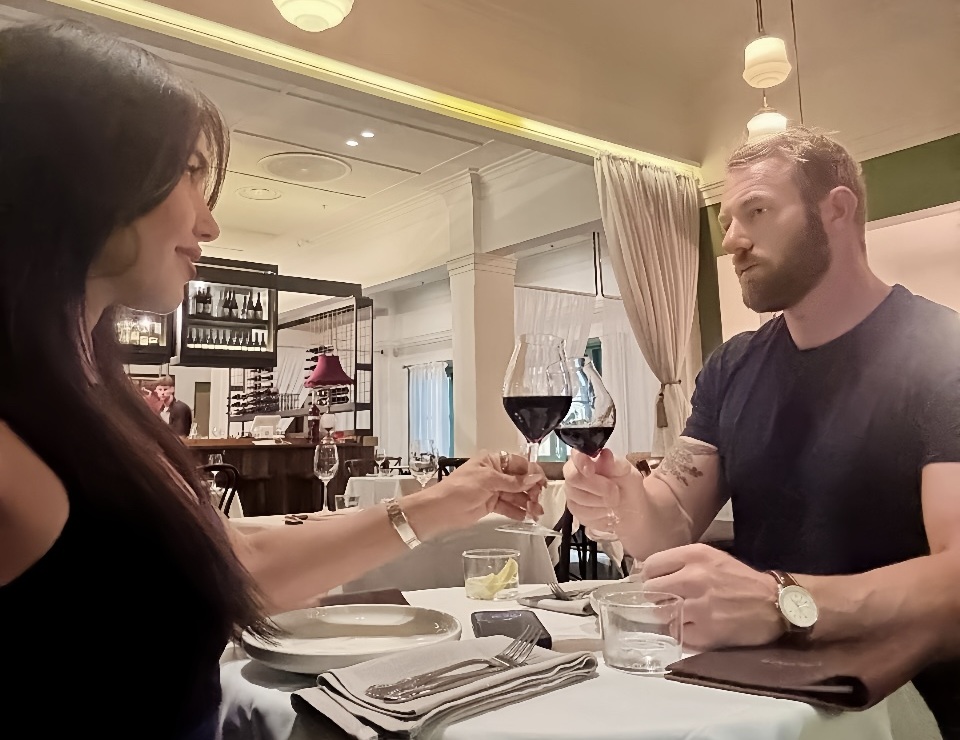Curiosity Over Assumptions tinder date
Mark was a man who prided himself on having his life together. In his early 40s, he had a stable career in IT, a comfortable apartment, and a close group of friends. But despite all his accomplishments, relationships always eluded him. He had been on dating apps for over a year and gone on countless dates, yet nothing seemed to stick.
One Saturday, Mark matched with Lisa, a lively and ambitious marketing professional in her late 30s. Her profile exuded warmth and creativity, with photos of her painting in a studio and hiking in scenic landscapes. Their initial chat was lighthearted and easy, and Mark felt a spark of excitement he had not felt in a while.
They arranged to meet for dinner at a trendy Italian restaurant. Mark, wanting to impress Lisa, dressed sharply, and arrived early to secure a good table. When Lisa walked in, she radiated elegance, wearing a simple yet stunning dress that matched her vibrant personality. Mark felt his nerves creeping in, but he was determined to make a good impression.
The evening started well, with laughter and easy conversation. But as the night went on, Mark’s approach began to falter.
A Misstep in Communication
Mark quickly defaulted to his usual set of questions—ones he had heard and used a hundred times before. “So, what do you do for work?” he asked with a polite smile.
Lisa answered, sharing some details about her marketing career, but she felt the question was impersonal and uninspired. She had heard it on nearly every first date and craved something more thoughtful, something that sparked curiosity.
Mark did not notice Lisa’s subtle frustration. Instead, he continued with a line of questioning that felt more like an interview than a conversation. “How long have you been in marketing?” “What kind of clients do you work with?” “Do you enjoy it?”
Lisa answered politely but started to disengage. She wanted Mark to see her as more than her career, to ask questions that revealed her personality and passions. Questions like, “What hobbies light you up?” or “What’s been the most exciting thing you’ve done this year?” would have drawn her in. Even something playful, like, “If you could be a famous actress or character from a movie, who would you be?” would have added some spark to the evening.
Instead, Mark stuck to his script. When Lisa mentioned her love for painting, he did not dive deeper to ask, “What inspires your art?” or “Have you been working on something exciting lately?” Instead, he moved quickly to talk about his own interests, sharing details about his gaming setup and recent solo trip to Japan.
Assumptions and Disconnect
Another misstep came when Mark assumed things about Lisa without asking her preferences. When the waiter came to take their dessert order, Mark took charge, confidently ordering tiramisu for both of them. Lisa, who had been eyeing the panna cotta, smiled politely but felt overlooked. A simple, “What looks good to you?” would have made all the difference.
The tipping point came when Lisa mentioned her passion for art and how it shaped her perspective on life. “Art helps me express things I can’t always put into words,” she said with quiet enthusiasm.
Mark, wanting to relate, said, “That is great. I am not artistic at all, but it is cool when hobbies can be productive.”
Lisa felt her enthusiasm deflate. She had hoped for curiosity or even a question about her creative process, but instead, Mark’s response felt dismissive. It became clear to her that Mark was not fully present or engaged in understanding her as a person.
Mark’s Realisation
Later that night, Mark replayed the evening in his mind, trying to figure out where things went wrong. He realised that his focus on asking surface-level questions and showcasing his own achievements had created a barrier. Lisa did not feel seen, heard, or appreciated. He thought back to their conversation and realised how much more engaging it could have been if he had asked questions that invited Lisa to share her passions, goals, and unique perspective.
Mark decided to make a conscious effort to improve his communication on future dates. Instead of sticking to predictable questions like, “What do you do for work?” or “Where are you from?” he resolved to ask more meaningful and creative questions, such as:
“What’s the most exciting thing you’ve done this year?”
“Have you been working on anything fun or inspiring lately?”
“If you could be a famous actress or character from a book, who would you be?”
“What’s a goal you’re excited to work on this year?”
“If you could live anywhere in the world for a year, where would it be?”
These types of questions would allow him to connect with his date on a deeper level and show genuine interest in who they were beyond their career or appearance.
Takeaway for Men
Mark’s story serves as a powerful reminder that successful connections are built on genuine curiosity, respect, and the ability to engage meaningfully. Effective communication goes far beyond surface-level questions or showcasing accomplishments—it requires being fully present, reading the other person’s body language, and creating a safe, engaging space for conversation.
For men, taking the lead in a date does not mean dominating the conversation or steering it toward predictable topics like work or achievements. Instead, it means being mindful of the other person’s comfort, respecting boundaries, and showing genuine interest in their thoughts, passions, and values. People often feel most connected when they are invited to share what genuinely excites or fulfils them. This could include their favourite experiences, aspirations, or even lighthearted fantasies that spark creativity and joy.
A simple shift in focus—away from questions like “What do you do for work?”—can make all the difference. Asking more thoughtful questions, such as “What’s something that made you smile this week?” or “What’s a dream you’ve been working toward lately?” not only deepens the conversation but also shows that you value the person beyond their external identity. It demonstrates that you see them as more than a job title or a list of accomplishments.
Paying attention to body language is equally important. Observing whether your date seems comfortable, engaged, or distracted can guide the flow of conversation. If they seem disinterested in a topic, gracefully pivot to something lighter or more engaging. Be present, attentive, and responsive, ensuring that the dialogue feels natural and mutual, rather than a one-sided interrogation.
Ultimately, meaningful communication requires vulnerability and intentionality. By respecting boundaries, avoiding overly personal or work-focused topics, and focusing on what makes the other person feel valued and understood, you create an atmosphere where authentic connection can flourish. Mark’s willingness to adapt his approach serves as an example of how slight changes in communication can lead to deeper, more fulfilling relationships.

